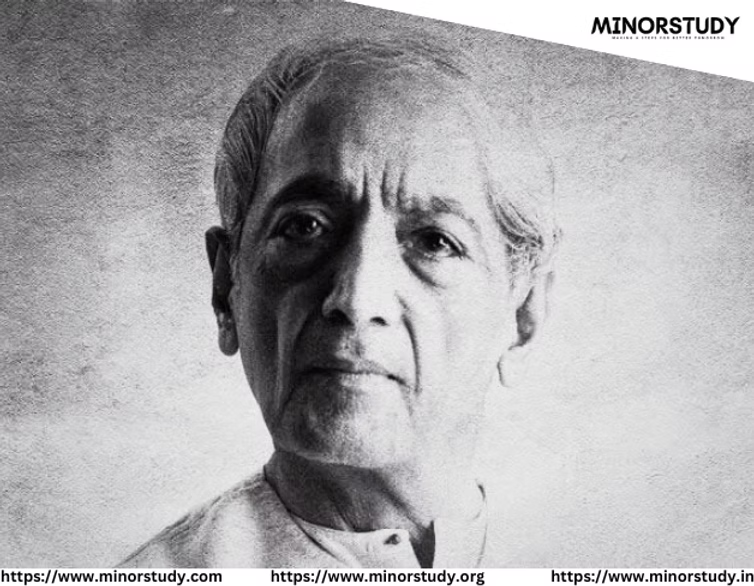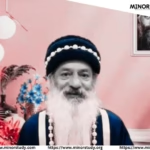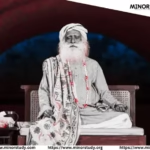Jiddu Krishnamurti: Comprehensive Overview
Who is Jiddu Krishnamurti?
Jiddu Krishnamurti (1895–1986) was a globally renowned Indian philosopher, speaker, and writer. His teachings revolved around self-inquiry, the nature of truth, and the transformation of human consciousness. Known for rejecting organized religion, gurus, and ideologies, Krishnamurti emphasized freedom from conditioned thought and the importance of individual understanding.
Historical Background
Date | Event |
May 11, 1895 | Born in Madanapalle, Andhra Pradesh, India. |
1909 | Discovered by Charles W. Leadbeater, a Theosophist, who believed Krishnamurti was a “World Teacher.” |
1911 | The Order of the Star in the East was established to prepare the world for his teachings. |
1929 | Dissolved the Order, declaring truth to be a “pathless land” and rejecting all dogma. |
1930s–1980s | Traveled globally, giving talks on self-awareness, freedom, and truth. |
February 17, 1986 | Passed away in Ojai, California, USA. |
Key Teachings
Truth is a Pathless Land:Krishnamurti famously stated that truth cannot be organized or approached through any single doctrine, religion, or philosophy.
Freedom from Conditioning:He emphasized understanding and transcending mental conditioning to achieve true freedom.
Self-Observation:Advocated for observing one’s thoughts and emotions without judgment to uncover the root of psychological conflict.
Importance of Awareness:Encouraged living in the present moment with full awareness, as opposed to being controlled by past experiences or future anxieties.
The Role of Education:Krishnamurti believed that education should nurture intelligence and freedom rather than conformity. He founded schools that integrated these principles.
Significance
Philosophical Contributions:Krishnamurti’s teachings offer profound insights into the nature of consciousness, relationships, and society.
Global Influence:He addressed audiences worldwide, influencing thinkers, psychologists, and educators.
Revolution in Education:The schools he established, such as the Rishi Valley School in India, focus on holistic education and self-inquiry.
Non-Sectarian Approach:His rejection of all forms of authority, including religious and spiritual, made his teachings universally accessible.
FAQs
Why is Krishnamurti significant?He revolutionized spiritual thought by rejecting dogma and emphasizing individual freedom and inquiry.
What is his famous quote about truth?“Truth is a pathless land.”
Did he belong to any religion?No, Krishnamurti rejected organized religion, rituals, and spiritual hierarchies.
What is the focus of his teachings?His teachings focus on self-awareness, understanding relationships, and freeing oneself from psychological conflict.
Major Contributions
Aspect | Details |
Dissolution of the Order | Marked his independence from the Theosophical Society and spiritual dogma in 1929. |
Books and Talks | Authored many books, including The First and Last Freedom and Freedom from the Known. |
Educational Philosophy | Founded schools that integrate self-awareness with academic education. |
Observance and Themes
Freedom and Responsibility:Encourages individuals to take responsibility for their thoughts and actions without relying on external authority.
Understanding Relationships:Emphasized that understanding oneself is key to harmonious relationships.
Global Unity:His philosophy fosters a sense of interconnectedness beyond national, religious, and cultural divisions.
Important Highlights
A spiritual revolutionary who disavowed all organized systems of belief.
Stressed the importance of individual inquiry and awareness.
His schools continue to inspire holistic education globally.
Left a legacy of profound teachings on freedom, truth, and human transformation.
Conclusion
Jiddu Krishnamurti life and teachings challenge us to question our assumptions, observe our thoughts, and seek truth beyond institutional frameworks. His timeless philosophy inspires millions to live authentically, free from societal and psychological constraints.
Summary Table
Aspect | Details |
Birth and Early Life | Born on May 11, 1895, in Madanapalle, Andhra Pradesh, India. |
Spiritual Awakening | Declared that truth cannot be institutionalized; dissolved the Order of the Star in 1929. |
Philosophical Stance | Advocated self-inquiry, freedom from conditioning, and truth as a “pathless land.” |
Educational Legacy | Established schools like Rishi Valley to integrate academic learning with self-awareness. |
Books and Teachings | Authored Freedom from the Known, Think on These Things, and other classics. |
Global Influence | Inspired individuals across disciplines, from spirituality to psychology and education. |








